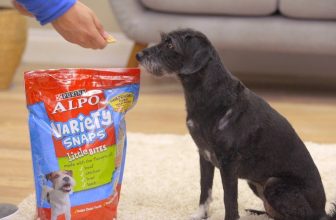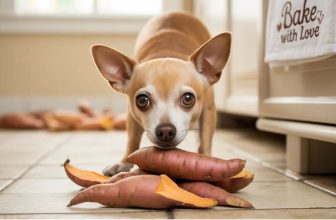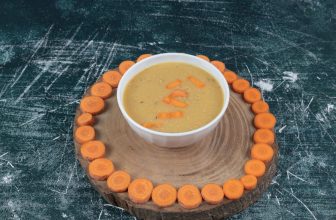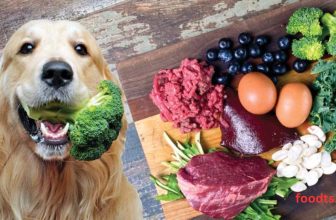Can Dogs Eat Food With Onions? Know the Risks Today
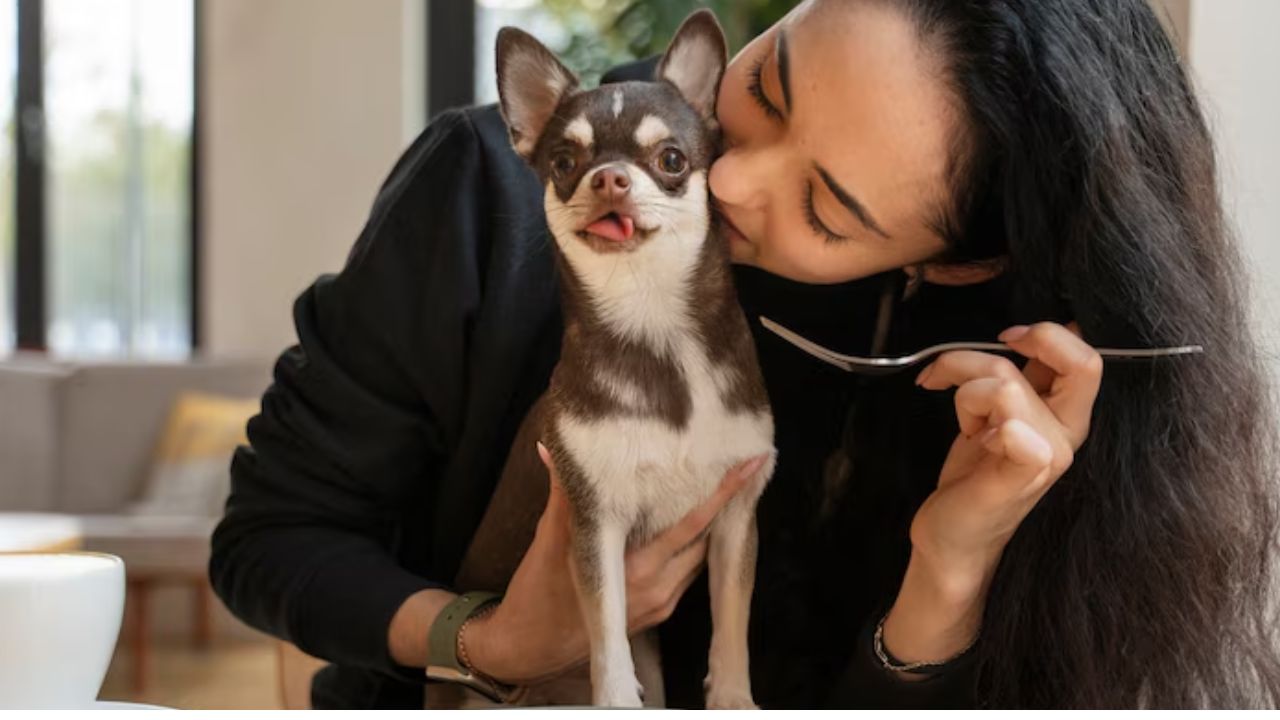
Can Dogs Eat Food With Onions? No, dogs should not eat food with onions. Even small amounts can be harmful. Onions contain toxic compounds that can damage a dog’s red blood cells, leading to anemia and other health issues. Since dogs have different dietary needs than humans, it’s important to know which foods are safe. Onions, though common in our meals, pose a serious risk. Always keep onion-containing foods away from your dog. This blog explains why onions are dangerous and how to keep your pet safe.
Onion Toxicity In Dogs
Many dog owners wonder about the safety of various human foods for their pets. One common question is whether dogs can eat food that contains onions. Onions are toxic to dogs and can cause serious health issues. Understanding onion toxicity and its effects on dogs is crucial for pet owners. Onion toxicity can lead to severe problems, including damage to red blood cells. This article will explore why onions are harmful to dogs and the symptoms of onion poisoning.
What Makes Onions Toxic?
Onions contain a compound called thiosulfate. This substance is harmless to humans but can be dangerous for dogs. Thiosulfate affects a dog’s red blood cells, leading to a condition known as hemolytic anemia. This condition can cause the red blood cells to break down and die. As these cells are essential for carrying oxygen, their loss can lead to serious health issues.
Different forms of onions, including raw, cooked, and powdered, all contain thiosulfate. Even small amounts can be harmful. Here are some facts about onion toxicity:
- All parts of the onion plant are toxic to dogs.
- Garlic, which is related to onions, also contains thiosulfate.
- Onion poisoning can occur with both fresh and dried onions.
Understanding these points can help prevent accidental ingestion of onions by dogs. Always check food labels and avoid feeding dogs food that might contain onions or garlic.
Symptoms Of Onion Poisoning
Symptoms of onion poisoning can vary, but several signs are common. Early detection is key to preventing severe health problems. Weakness and lethargy are often the first signs. The dog may appear unusually tired or inactive. Vomiting and diarrhea are also common and can occur soon after ingestion.
Other symptoms to look out for include:
- Pale gums indicate a lack of healthy red blood cells.
- Rapid breathing or panting.
- Increased heart rate.
If you notice these symptoms, it’s important to seek veterinary care immediately. Blood tests can confirm onion poisoning and help determine the severity. Quick treatment can prevent long-term damage. Always keep onions and related foods out of reach to ensure your dog’s safety.
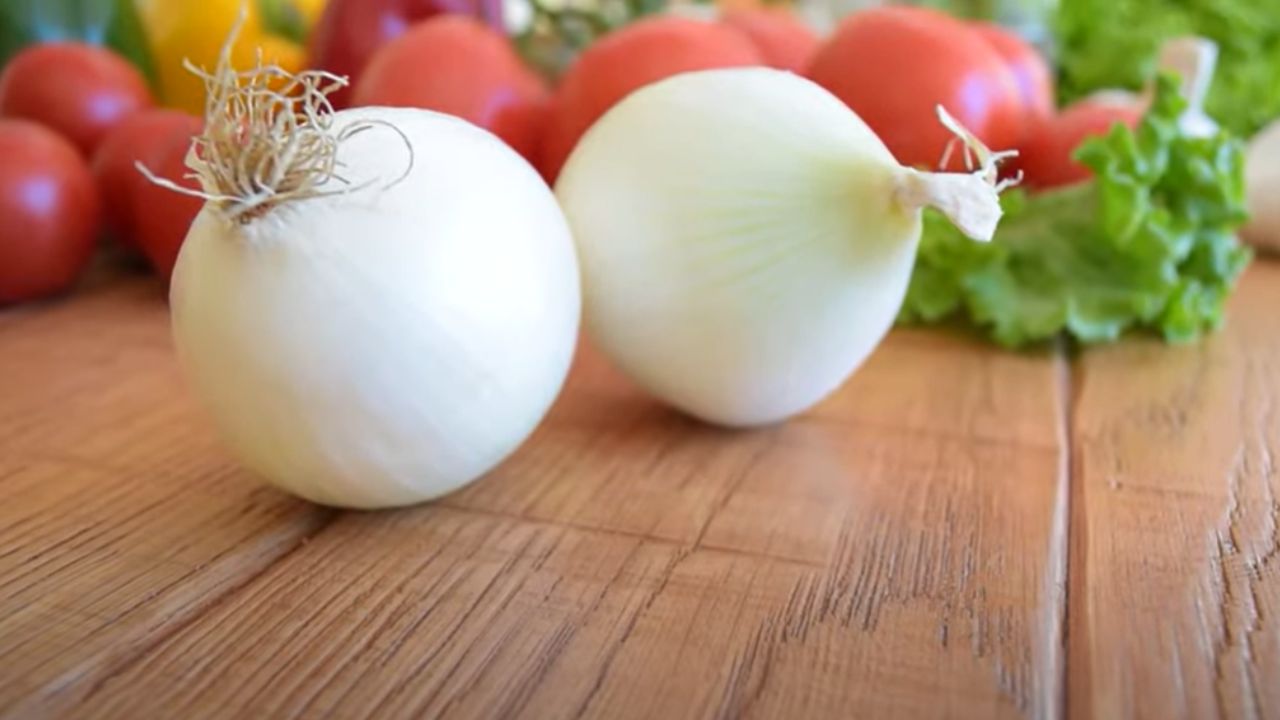
Types Of Onions
Dogs are curious creatures. They often want to taste whatever their humans are eating. But, some foods are not safe for them. Onions are one such food. They can be harmful to dogs. There are different types of onions. Each type poses a risk to canine health. Understanding the dangers can help keep your dog safe. It’s important to know how onions affect dogs. Whether raw, cooked, or in other forms, onions can be dangerous.
Raw Vs Cooked Onions
Raw onions are toxic to dogs. They contain compounds that can harm a dog’s health. These compounds can damage red blood cells. This can lead to anemia. Symptoms include weakness, lethargy, and pale gums. Cooked onions are also dangerous. Cooking does not remove the harmful compounds. Dogs can suffer the same symptoms if they eat cooked onions.
Here’s why onions are risky for dogs:
- Raw onions contain thiosulfate. This is harmful to dogs.
- Cooking does not eliminate the toxins. Cooked onions remain risky.
- Even small amounts can cause health issues.
- Symptoms can appear days after ingestion. Monitor your pet if you suspect onion consumption.
In summary, both raw and cooked onions are unsafe for dogs. It’s best to keep onions away from your pet’s diet.
Onion Powder And Other Forms
Onion powder is a common ingredient in many foods. It’s more concentrated than fresh onions. This makes it even more dangerous for dogs. Small amounts can cause serious problems. Onion powder is found in many processed foods. Dogs should never eat foods containing onion powder.
Other forms of onions include:
| Type | Risk Level |
|---|---|
| Onion powder | Very high risk |
| Dehydrated onions | High risk |
| Chopped onions | High risk |
All forms of onions can be harmful to dogs. Even onion rings and sauces are not safe. Always check food labels. Ensure they do not contain onion ingredients. Keeping onions away is the safest choice for your dog.
Safe Foods For Dogs
Dogs are man’s best friend. They deserve the best care, especially when it comes to their diet. Onions are a common ingredient in many dishes. But they can be harmful to dogs. This brings up an important question: Can dogs eat food with onions? The answer is no. Onions contain compounds that are toxic to dogs. They can cause serious health issues. Knowing safe foods for dogs is crucial for every pet owner. Keeping your dog’s diet healthy ensures their happiness and longevity.
Dog-friendly Vegetables
Vegetables are a great addition to a dog’s diet. They provide essential vitamins and minerals. Some vegetables are better for dogs than others. Carrots are a top choice. They are rich in beta-carotene. This is good for eye health. Carrots also help clean teeth. Broccoli is another excellent option. It is packed with fiber. It aids digestion and supports heart health.
Sweet potatoes are also dog-friendly. They are high in vitamins A and C. They support a strong immune system. Green beans are low in calories. They are perfect for dogs on a diet.
| Vegetable | Benefits |
|---|---|
| Carrots | Eye health, dental care |
| Broccoli | Fiber, heart health |
| Sweet Potatoes | Immune support |
| Green Beans | Low-calorie option |
Alternatives To Onions
While onions are off-limits, there are many tasty alternatives for dogs. Garlic in small amounts can be safe. It boosts the immune system and reduces cholesterol. Leeks are another option. They belong to the same family as onions but are less toxic.
Herbs like parsley and cilantro are safe and healthy. They provide fresh flavor to meals. Bell peppers are sweet and crunchy. They are full of vitamins A and C. Pumpkin is a great source of fiber. It helps with digestion and adds a sweet taste to food.
- Garlic (small amounts)
- Leeks
- Parsley
- Cilantro
- Bell peppers
- Pumpkin
Dog’s Digestive System
Dogs are beloved pets and part of the family. It’s crucial to know what foods are safe for them. Onions are a common ingredient in many dishes. But can dogs eat food with onions? Understanding a dog’s digestive system helps answer this question. Their digestive process is different from humans. This means certain foods can be harmful. Onions, in particular, pose a risk. Let’s explore how dogs process food and the impact onions have on their digestion.
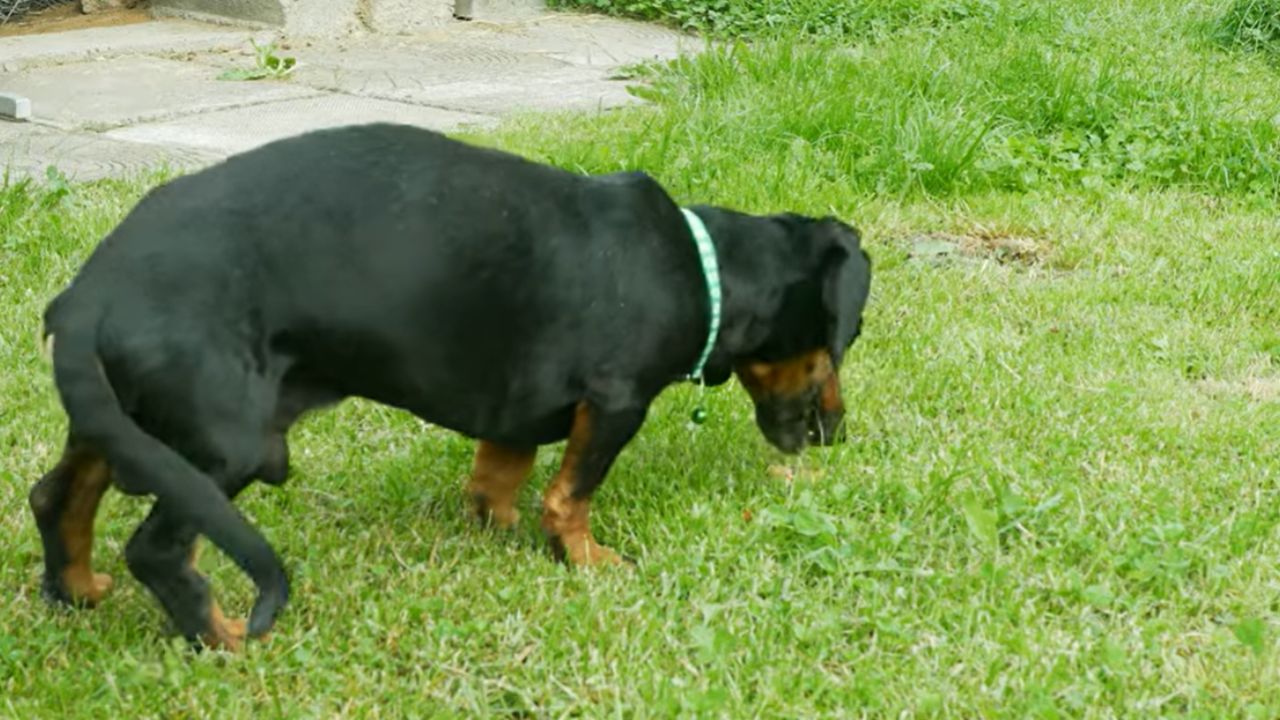
How Dogs Process Food
Dogs have a unique way of processing food. Their digestive system is designed for meat. This means they can break down proteins efficiently. Here’s a quick look at their digestive process:
- Mouth: Dogs use their teeth to tear food, not chew.
- Stomach: Their stomachs are highly acidic. This helps digest meat.
- Intestines: Nutrients are absorbed in the intestines.
Proteins are essential for dogs. Their bodies are made to absorb proteins quickly. Carbohydrates and fats are also processed. But proteins are broken down first. Dogs have a shorter digestive tract than humans. This means food passes through quickly. Digestive enzymes in their stomachs help break down food. But they lack certain enzymes for plant-based foods. This is why some vegetables can be hard to digest for dogs. Understanding this helps explain why onions can be a problem.
Impact Of Onions On Digestion
Onions can be dangerous for dogs. They contain compounds that are toxic to them. Here’s how onions affect a dog’s digestion:
| Onion Compound | Effect on Dogs |
|---|---|
| Thiosulfate | Causes red blood cell damage |
| Sulfur compounds | Lead to gastrointestinal irritation |
Ingesting onions can lead to serious health issues. Symptoms include vomiting, diarrhea, and fatigue. In severe cases, it can cause anemia. Even small amounts of onions can be harmful. Cooking onions doesn’t make them safe. The toxic compounds remain. Dogs should not eat foods containing onions. Being aware of this helps keep your pet healthy. Always check food labels and be cautious with leftovers.
Immediate Actions For Onion Exposure
Onions are a common ingredient in many dishes. But they are dangerous for dogs. Onion poisoning can lead to serious health problems. It’s crucial to know what to do if your dog eats onions. Immediate actions can save your pet from harm. This article explains important steps you should take if your dog consumes onions.
First Aid Steps
If your dog eats onions, act quickly. Speed is crucial to prevent poisoning. Follow these steps to help your dog:
- Remove any onions from your dog’s reach.
- Check the amount eaten. Small amounts might not be harmful.
- Monitor your dog’s symptoms. Look for signs like vomiting or lethargy.
- Induce vomiting if advised by a vet. This can remove the onion from their system.
- Offer fresh water to keep them hydrated.
Observing your dog’s behavior is vital. If symptoms worsen, take further action. Keeping your vet informed is also helpful. They can provide professional guidance and next steps.
When To Visit The Vet
Sometimes, home remedies are not enough. Vet visits become necessary in severe cases. Here are signs that indicate you should go to the vet:
- Severe vomiting that doesn’t stop.
- Diarrhea and abdominal pain.
- Weakness or collapse. Your dog can’t stand.
- Breathing difficulties or increased heart rate.
- Discolored gums. This may indicate anemia.
Quick action can prevent serious health issues. The vet will likely perform tests. Blood tests can show the toxin level. Treatment might include IV fluids and medication. Remember, your dog’s health is a priority. Always consult a professional when in doubt.
Preventing Onion Exposure
Dogs are beloved members of many families. Their well-being is often a top priority. A common concern is whether dogs can safely eat foods containing onions. Onions are harmful to dogs and can lead to serious health issues. Preventing onion exposure is crucial for their safety. This involves being careful about what they eat and ensuring their environment is onion-free.
Keeping Foods Safe
Ensuring that dogs do not consume onions involves careful food handling. Dogs are often curious and may try to eat anything within reach. Onions are toxic and can cause anemia in dogs. It’s important to store foods containing onions safely. Keep such foods out of their reach.
Here are some tips to keep food safe:
- Store onion-containing foods in sealed containers.
- Place these containers on high shelves or closed cabinets.
- Dispose of onion scraps immediately in secure trash bins.
Even small amounts of onion can be dangerous. Be vigilant when cooking and serving meals. Consider preparing separate dishes for pets if your meal contains onions. Regular checks of your kitchen and dining areas can also help. Prevention is key to keeping your dog healthy and safe.
Educating Family And Friends
Everyone in the household should know about the dangers of onions for dogs. This includes family members and frequent visitors. Communicate clearly that onions are not safe for dogs. Make sure everyone understands the potential risks.
Here are some ways to educate others:
- Discuss the dangers during family meals or gatherings.
- Share informational articles or pamphlets on pet safety.
- Encourage guests to avoid feeding the dog without checking first.
Children can be particularly unaware of these dangers. Teach them about safe and unsafe foods for pets. Creating awareness can prevent accidental exposure. Everyone must be on the same page regarding pet safety. This collective understanding helps protect your beloved pet from harm.
Common Myths
Dogs are beloved pets, and their owners want the best for them. Sometimes, it can be hard to know which foods are safe for dogs. Onions are one such food that confuses. Many people wonder if dogs can eat food with onions. There are many myths about this topic that need to be explored.
Myths About Onions And Dogs
There are several common myths about dogs eating onions. Understanding these myths is crucial for every dog owner. Let’s look at some of the most popular ones:
- Onions are safe in small amounts: Many believe small amounts won’t harm dogs. However, even a little can be toxic.
- Cooking onions makes them safe: Cooking does not remove the harmful substances. Cooked or raw, onions can still be dangerous.
- All dogs can handle onions differently: Some think that larger dogs can handle onions better. But all dogs, regardless of size, can be affected.
- Onions only affect certain breeds: This is false. Onions are toxic to all dog breeds.
Each of these myths can lead to serious health issues. It’s important to understand the truth behind these beliefs. Knowing the facts helps in making safer food choices for dogs.

Clarifying Misconceptions
Onions contain a compound called thiosulfate. This is harmful to dogs because they can’t digest it. When dogs eat onions, they risk developing a condition called hemolytic anemia. This condition can be serious and requires veterinary attention.
Symptoms of onion toxicity include:
- Weakness
- Vomiting
- Breathing difficulties
- Loss of appetite
These symptoms might not show immediately. They can appear days after ingestion. Owners should watch for these signs carefully.
To keep dogs safe, avoid feeding them any food with onions. Always check ingredient lists on packaged foods. Some baby foods or soups might contain onion powder. Being vigilant can prevent accidental onion ingestion.
In case a dog eats onions, contact a vet immediately. Quick action can help prevent serious health problems. Awareness and caution are the best tools to protect our furry friends.
Frequently Asked Questions: Can Dogs Eat Food With Onions?
Can Dogs Eat Food Cooked With Onions?
Dogs should not eat food cooked with onions. Onions can be toxic to dogs and cause serious health issues. Consuming onions may lead to anemia, stomach upset, and other complications. Always avoid feeding your dog dishes containing onions to ensure their safety and well-being.
What If My Dog Eats A Little Piece Of Onion?
Onions are toxic to dogs. Small amounts can cause upset stomachs or more serious issues. Monitor your dog for symptoms like vomiting or lethargy. Contact your veterinarian immediately if your dog shows any signs of distress. Early intervention can prevent serious health problems.
Will My Dog Be Okay If He Ate One Onion Ring?
Eating one onion ring might not harm your dog immediately. Onions can be toxic to dogs, causing anemia. Monitor your dog for symptoms like lethargy or vomiting. Contact a vet if you notice any signs. Better safe than sorry; always keep onions away from your pet’s reach.
What If My Dog Ate A Little Green Onion?
Green onions can be toxic to dogs. Monitor your dog for symptoms like vomiting or lethargy. Contact your vet immediately if you notice any unusual behavior or symptoms. Early treatment can prevent serious health issues.
Why Are Onions Bad For Dogs?
Onions can harm dogs. They contain thiosulfate, which damages red blood cells. This can lead to anemia.
Conclusion
Dogs should not eat onions. Onions can harm their health. They cause upset stomachs and more serious issues. Even small amounts can be dangerous. Always check ingredients before feeding your dog. Keep onion-containing foods out of their reach. Choose safer treats instead.
Many healthy options exist. Your dog’s well-being comes first. Consult your vet for advice. Better safe than sorry. Keep your furry friend happy and healthy.



